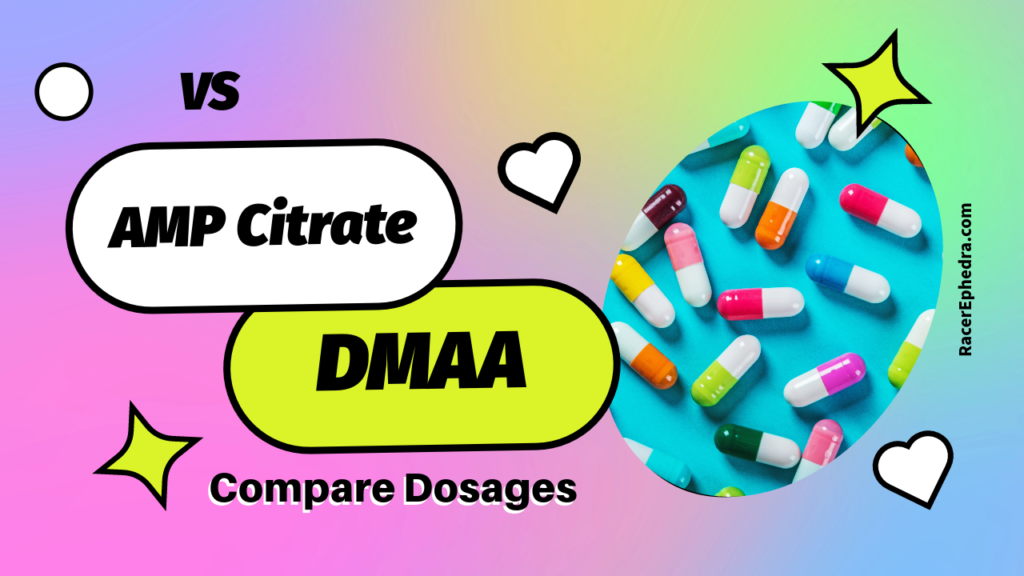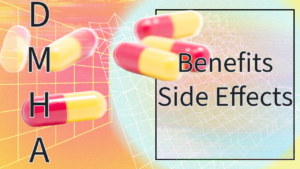In the world of dietary supplements, there are constantly new ingredients being introduced, each claiming to offer various benefits. Two such ingredients that have gained attention in recent years are Amp Citrate and DMAA. Both are stimulants commonly found in pre-workout supplements and are known for their potential to enhance focus, energy, and performance. However, there are important distinctions between the two in terms of their effects, legality, and recommended dosages. In this article, we will provide a comprehensive comparison of Amp Citrate and DMAA to help you understand their similarities and differences.

What is Amp Citrate?
Amp Citrate, also known as 1,3-dimethylbutylamine, is a synthetic compound that acts as a central nervous system stimulant. It has gained popularity as a pre-workout supplement ingredient due to its potential to increase energy levels, focus, and athletic performance. Amp Citrate is often touted as a safer alternative to DMAA, which we will explore in more detail later. (2)
What is DMAA?
DMAA, or 1,3-dimethylamylamine, is a pharmaceutical amphetamine derivative that was initially introduced in 1948 as a nasal inhaler for rhinitis. However, it was later withdrawn as an approved pharmaceutical due to safety concerns. Despite this, DMAA has found its way into many sports supplements and gained popularity for its potential performance-enhancing effects. (1)
Effects Comparison
Amp Citrate Effects
Amp Citrate is commonly marketed as a potent stimulant that can provide increased energy, focus, and endurance. It is believed to work by stimulating the release of neurotransmitters such as dopamine, norepinephrine, and serotonin in the brain, leading to heightened mental alertness and improved physical performance. Some users report experiencing a surge of energy and improved concentration after taking Amp Citrate. (3)
DMAA Effects
DMAA also acts as a stimulant, but its mechanism of action is different from that of Amp Citrate. DMAA is thought to stimulate the release of norepinephrine, which can increase heart rate and blood pressure. This can result in heightened energy levels, improved focus, and enhanced physical performance. Users of DMAA often report increased motivation and a boost in overall athletic performance.
Similarities in Effects
Both Amp Citrate and DMAA share some common effects due to their stimulant properties. These include increased energy levels, enhanced focus, and improved physical performance. However, the intensity and duration of these effects may vary from person to person and depend on factors such as dosage, tolerance, and individual response.
Legality Comparison
Amp Citrate Legality
As of the time of writing, Amp Citrate is not explicitly classified as a controlled substance by the United States Drug Enforcement Administration (DEA). However, its legal status remains somewhat uncertain. The FDA has raised concerns about the safety of Amp Citrate and has issued warning letters to manufacturers of dietary supplements containing this ingredient. It is advisable to stay updated on the latest regulations and consult with local authorities before purchasing or consuming Amp Citrate products. (4)
DMAA Legality
DMAA has faced regulatory scrutiny and has been banned in several countries, including Canada and New Zealand. In the United States, the FDA has taken action against DMAA-containing supplements, issuing warning letters and requiring manufacturers to provide evidence supporting the safety of DMAA as a dietary supplement ingredient. It is essential to be aware of the legal status of DMAA in your country or region before using any products that contain this ingredient.
Safety and Side Effects
Amp Citrate Safety
The safety of Amp Citrate is a subject of debate. While some individuals report no adverse effects when using Amp Citrate at recommended dosages, others have reported side effects such as increased heart rate, elevated blood pressure, headaches, and nausea. It is crucial to start with a low dosage and monitor your body’s response before gradually increasing the amount consumed. If you experience any adverse effects, discontinue use and consult with a healthcare professional. (5)
DMAA Safety
DMAA has been associated with various side effects and adverse events. These can include increased heart rate, elevated blood pressure, anxiety, insomnia, headaches, and gastrointestinal issues. In severe cases, DMAA has been linked to more serious complications such as seizures, panic attacks, and even death. The use of DMAA as a party drug has also been implicated in cases of hemorrhagic stroke. Due to these safety concerns, it is strongly advised to avoid using DMAA-containing supplements.
Dosage Recommendations
Amp Citrate Dosage
Due to the lack of scientific research and regulatory oversight, there are no established dosage guidelines for Amp Citrate. However, it is generally recommended to start with a low dose of 50-75mg and assess your tolerance before increasing the amount consumed. It is crucial to follow the instructions provided by the manufacturer and avoid exceeding the recommended dosage.
DMAA Dosage
Similar to Amp Citrate, there are no standardized dosage recommendations for DMAA. However, it is important to note that DMAA is a potent stimulant with potentially serious side effects. It is strongly advised to avoid DMAA-containing supplements altogether due to safety concerns and the lack of evidence supporting its use as a dietary supplement ingredient.
Conclusion
In summary, Amp Citrate and DMAA are both stimulant ingredients commonly found in pre-workout supplements. While they share some similar effects, such as increased energy and improved focus, there are important distinctions to consider. Amp Citrate is a synthetic compound that lacks clear regulatory status, while DMAA has faced legal scrutiny and is banned in several countries. Furthermore, the safety of both ingredients is a subject of concern, with reports of adverse effects and potential health risks associated with their use. It is crucial to prioritize safety and consult with healthcare professionals before considering the use of any dietary supplements containing Amp Citrate or DMAA.
Note: This article is intended for informational purposes only and should not be considered medical advice. Consult with a healthcare professional before taking any dietary supplement.



